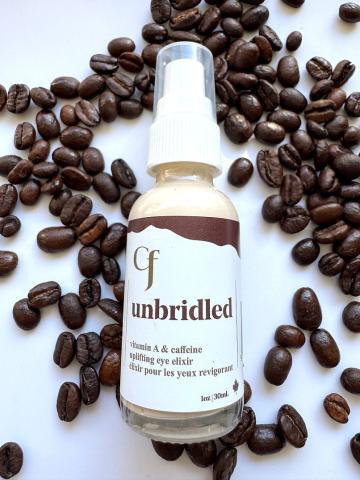Product Description
30mL - 1 oz // UNBRIDLED // A lightweight yet potent formula crafted to bring brightness and vitality to the delicate skin around your eyes. Powered by Vitamin A to support smooth, refreshed skin & caffeine to visibly energize and reduce puffiness. Fast-absorbing and gentle, this elixir helps your eyes rise and shine with you—ready for whatever the trail brings
